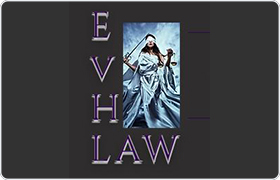Tijeras Criminal Lawyer, New Mexico, page 2
Sponsored Law Firm
-
 x
x

Click For More Info:
-
Law Office Of Elizabeth V. Han
2601 Wyoming Blvd NE Suite 106 Albuquerque, NM 87111» view mapCriminal Defense and Divorce & Family Law Trust Our Experienced Team
Let the Law Office Of Elizabeth V. Han handle your legal matters.
800-647-3590
FREE CONSULTATION
CONTACTAlbert B. Lassen
Criminal, Estate Planning, Family Law, Insurance, Personal Injury
Status: In Good Standing
Janine Arvizu
Criminal
 Elizabeth Han Albuquerque, NM
Elizabeth Han Albuquerque, NM Practice AreasExpertise
Practice AreasExpertise
